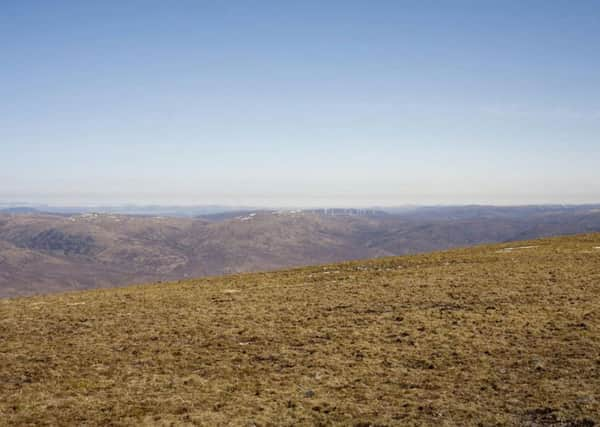Give us better access '¨to environmental justice


It comes at a time when the Scottish planning system is under scrutiny as never before. No longer do people let developers do as they please in the name of economic growth.
Environmental protection is important for people as well as nature, with growing evidence of the link between the quality of the environment and the health and wellbeing of the people who live there.
Advertisement
Hide AdAdvertisement
Hide AdBut do communities and environmental groups get a fair say in decisions that affect their lives? For the government, the main priorities are to simplify and speed up the planning process, to enable development to take place. But among the wider public, there is considerable dissatisfaction regarding planning process, often concerning environmental damage from poorly planned development.
Community empowerment is a key government priority. But if local people are to have meaningful power, they must surely be given free and fair access to the planning process.
The UK is a signatory to the United Nations Aarhus Convention, which has three strands: 1) Access to environmental information; 2) Public participation in environmental decision-making; 3) Access to justice. Scots law incorporates these principles into legislation and planning policies. However, that framework will only deliver the desired result if applied properly, or if decisions can be reasonably challenged by members of the public or relevant organisations.
The John Muir Trust was recently forced, reluctantly, to take out a judicial review against the Scottish Government over a major industrial development at Stronelairg in the Monadhliath Mountains, an area of special natural landscape. Despite its monumental scale, the public were given no opportunity to participate in the planning process, because there was no Public Local Inquiry. We believed that the Scottish ministers responsible for the decision did not follow proper process. The Trust applied for what’s called a Protective Expenses Order (PEO). This is a mechanism to ensure that an individual or organisation taking an environmental case in the public interest should have capped liability, in the event the case is lost.
A PEO is given if the costs are considered by the court to be “prohibitively expensive”. Otherwise, Scots law works on the basis that the loser is liable for all or most of the winner’s costs. But in two separate rounds of court action, we were refused PEOs based on our financial situation. The whole process of seeking this protection added a further four days in court, which meant even more liability.
We did, however, raise sufficient funds from our supporters to allow us to continue the case, and won the first legal battle in the Court of Session. Unfortunately that decision was overturned following an appeal by the Scottish Government and Scottish and Southern Energy. The cost of the process, including Scottish Government and SSE’s legal bills, could be as much as £300,000 – a huge sum of a money for a small Pitlochry-based charity.
Yet we had no other way of challenging what we believe is a serious flaw in the planning process. If the decision had gone against the developer, they would have had an automatic right to appeal through the planning system. But those who oppose development have no such right. Nor is legal aid generally available for charitable organisations seeking to defend the public good on environmental matters.
It is these kinds of anomalies and injustices in the planning system that will be discussed at the Holyrood conference on 4 October. Hopefully that will be just the start of a wide-ranging debate across Scotland over the principles and the practice of environmental justice.
Helen McDade, Head of Policy, John Muir Trust, www.johnmuirtrust.org